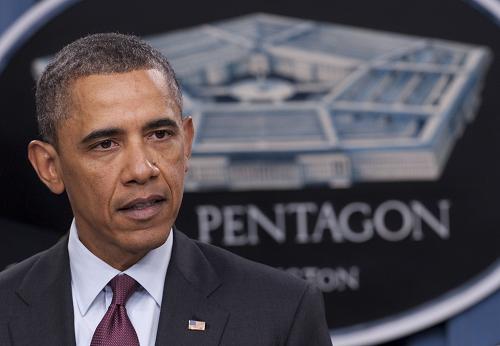US role in Asia-Pacific welcome, but not warmongering
 0 Comment(s)
0 Comment(s) Print
Print E-mail
Xinhua, January 6, 2012
E-mail
Xinhua, January 6, 2012
U.S. President Barack Obama rolled out a new defense strategy Thursday that will shift the country's military focus to the Asia-Pacific region, and cut 489 billion U.S. dollars in defense spending in the next decade.
With the strategy sure to considerably reshape the U.S. defense structure, the United States is welcome to make more contribution to peace and stability in the Asia-Pacific region, but its possible militarism will cause a lot of ill will and meet with strong opposition in the world's most dynamic region.
Legitimate interests of the United States, the world's biggest power, in the Asia-Pacific region are generally respected by other countries.
The U.S. role, if fulfilled with a positive attitude and free from a Cold War-style zero-sum mentality, will not only be conducive to regional stability and prosperity, but be good for China, which needs a peaceful environment to continue its economic development.
However, while boosting its military presence in the Asia-Pacific, the United States should abstain from flexing its muscles, as this won't help solve regional disputes.
If the United States indiscreetly applies militarism in the region, it will be like a bull in a china shop, and endanger peace instead of enhancing regional stability.
Despite its latest defense budget cuts, the Pentagon still spends over 600 billion dollars annually for baseline budget and war-fighting tasks, and the U.S. defense budget continues to be larger than those of the next 10 countries combined.
Therefore, the United States has the greatest potential to secure world peace and stability, but it also has the greatest power to create chaos. With power comes responsibility, so the United States should exercise the utmost caution in the use of its military forces.
According to the new strategy, the United States should maintain a force that can win one major war while still being able to deter a second one, in contrast to the Pentagon's previous plan that empowered the U.S. military to win two major wars at the same time.
The new strategy suggests a retreat from former military ambitions for the United States, which is dealing with a severe economic crisis domestically and two expensive wars overseas.
Over the past decade, the United States fought wars in Afghanistan and Iraq, which cost thousands of lives and over 1 trillion dollars.
The two wars became a heavy burden for the United States and caused a tremendous amount of suffering for the two Asian countries.
History teaches us that military intervention can't usher in lasting peace and prosperity in another country.
The United States should learn from its past painful experiences and play a constructive role in the Asia-Pacific instead of recklessly practising militarism. After all, might does not always make right.






